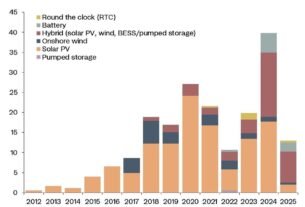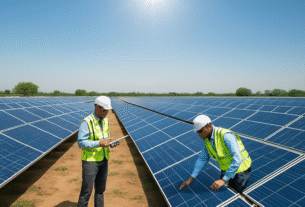In Short : India has successfully installed 23 GW of renewable energy capacity in a mere five months, positioning itself as the third-largest contributor to global power sector growth, as announced by Union Minister R.K. Singh Joshi. This accomplishment, driven by significant advancements in solar, wind, and other clean energy sources, highlights India’s rapid transition to renewable energy and its emerging status as a global leader in sustainable power.
In Detail
India has achieved a significant milestone in its energy transition by adding 23 GW of renewable energy capacity within just five months, according to Union Minister R.K. Singh Joshi. This remarkable increase reflects the country’s robust policy support, active investor participation, and the involvement of the private sector in the clean energy domain.
The growth was primarily fueled by solar energy, with utility-scale solar parks and rooftop installations making substantial contributions across various states. Additionally, both new and repowered wind projects provided further impetus, while biomass and small hydro projects enhanced the expansion, ensuring a more diverse and reliable clean energy portfolio.
This progress establishes India as the third-largest nation worldwide in terms of power sector capacity additions during this timeframe, emphasizing its success in harmonizing ambitious renewable energy targets with swift implementation.
Policy initiatives such as competitive auctions, viability gap funding, and fiscal incentives have played a crucial role in attracting investments from both domestic and international sources. These frameworks have facilitated the rapid scaling of renewable projects while maintaining financial sustainability.
This achievement also propels India closer to its climate and sustainability objectives, decreasing reliance on fossil fuels and aligning with commitments made under the Paris Agreement.
Decentralized initiatives — including rooftop solar, community-based solar, and hybrid energy solutions — have fostered nationwide adoption, enhancing energy access in both urban and rural settings.
In the future, India intends to capitalize on this momentum by incorporating energy storage solutions, hybrid models, and smart grid technologies, thereby ensuring that the growth of renewable energy is sustainable, dependable, and able to satisfy future demand.




